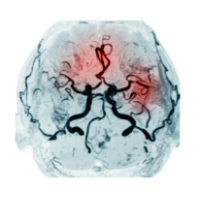Sleep Apnea and Stroke (Cerebrovascular Disease)
|
Sleep apnea is one of the leading risk factors for a stroke. This risk increases in correspondence with several factors, including age, heart disease, and the severity of sleep apnea. Not only is it a risk factor before a stroke occurs, but it is also one of the most common after affects. Lower Your RiskOne of the most important things you can do to help lower your risk of both having a stroke and sleep apnea is to live a healthy lifestyle. Changing your habits to incorporate exercise and a healthy diet is the first step. Often times, sleep apnea can go untreated so even if you think you may be healthy, you could still be at risk. Here are some more tips to lower your risk of a stroke and sleep apnea:
To lower the risk of stroke, it is also important to use prescribed CPAP or bilevel devices consistently, and to take the steps above to aid in a successful treatment of sleep apnea. Treatment will improve blood flow to the brain resulting in better outcomes. Act FastIf you suspect someone close to you is having a stroke, it is important to remember to act F.A.S.T. and ask yourself or the patient these questions:
Life Post-StrokeLife after a stroke looks different for everyone. However, typically when someone has had a stroke, the severity of obstructive sleep apnea has also been known to worsen. It's important to listen to the instructions your doctor has ordered to recover the best way possible. On top of an increased stroke risk, sleep apnea also increases a person's risk for high blood pressure, heart attack, abnormal heart rhythms, and diabetes, so be sure to keep on top of your health to eliminate or lessen the chance of these concerns. |
 |
|
